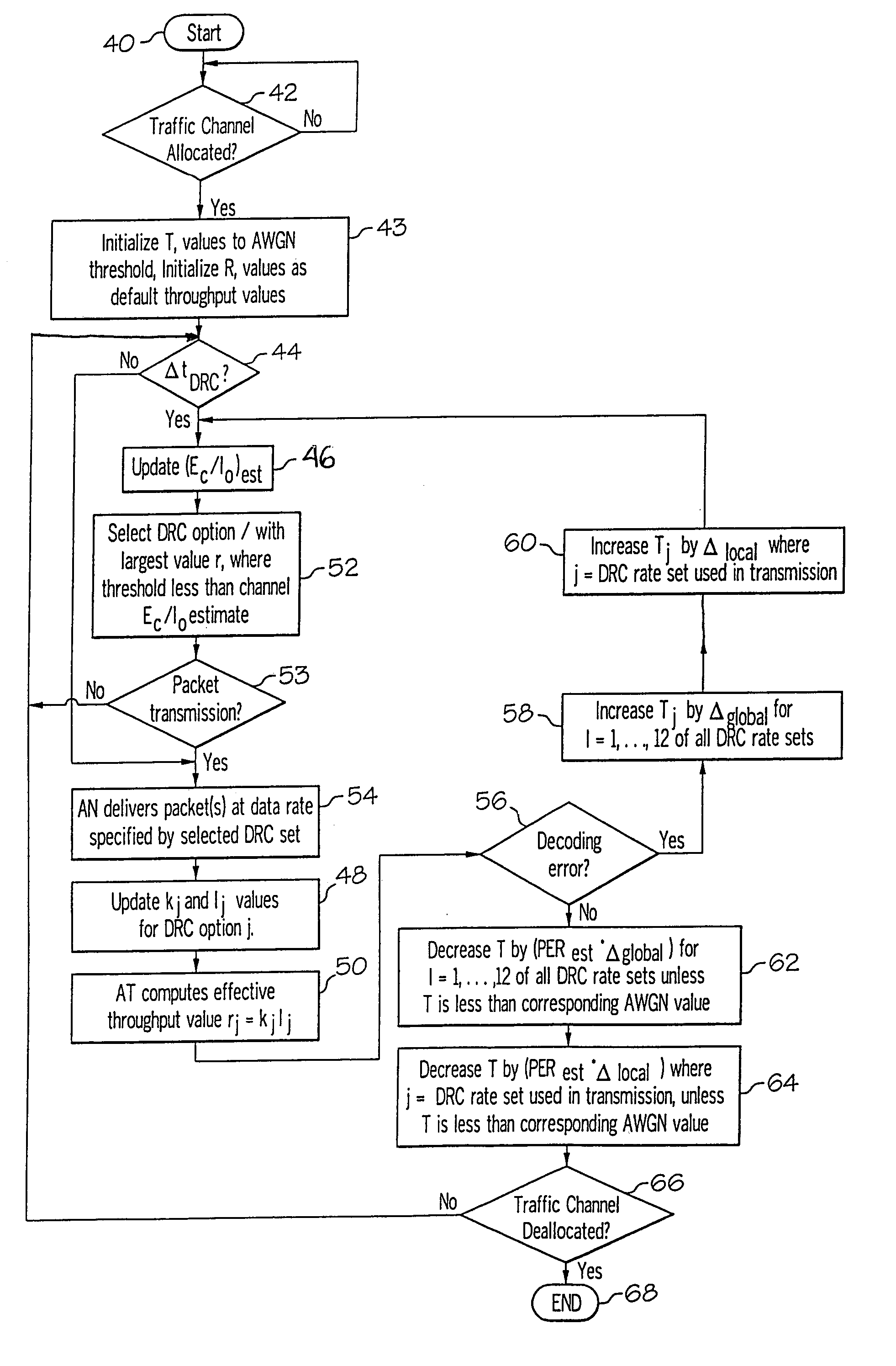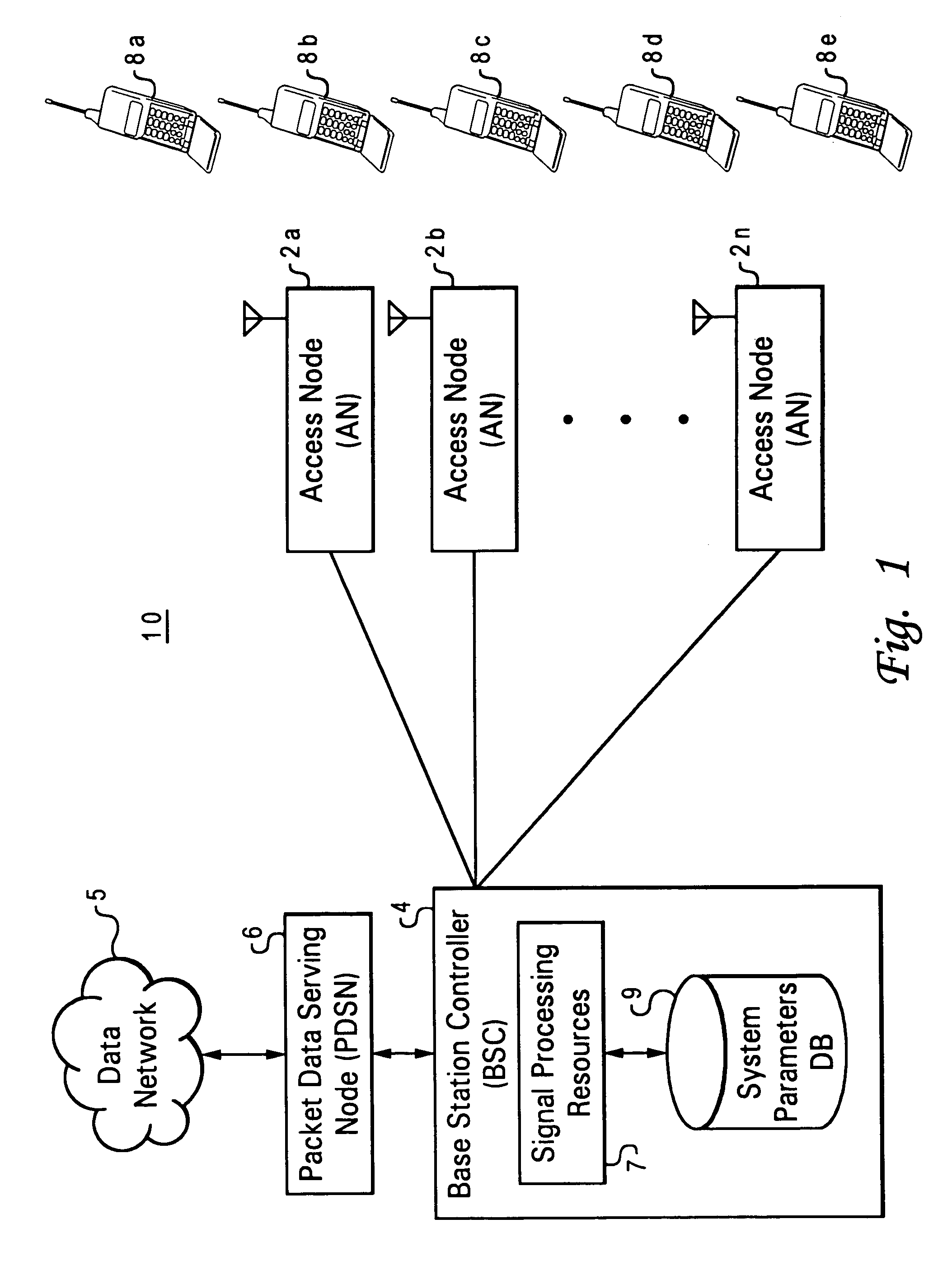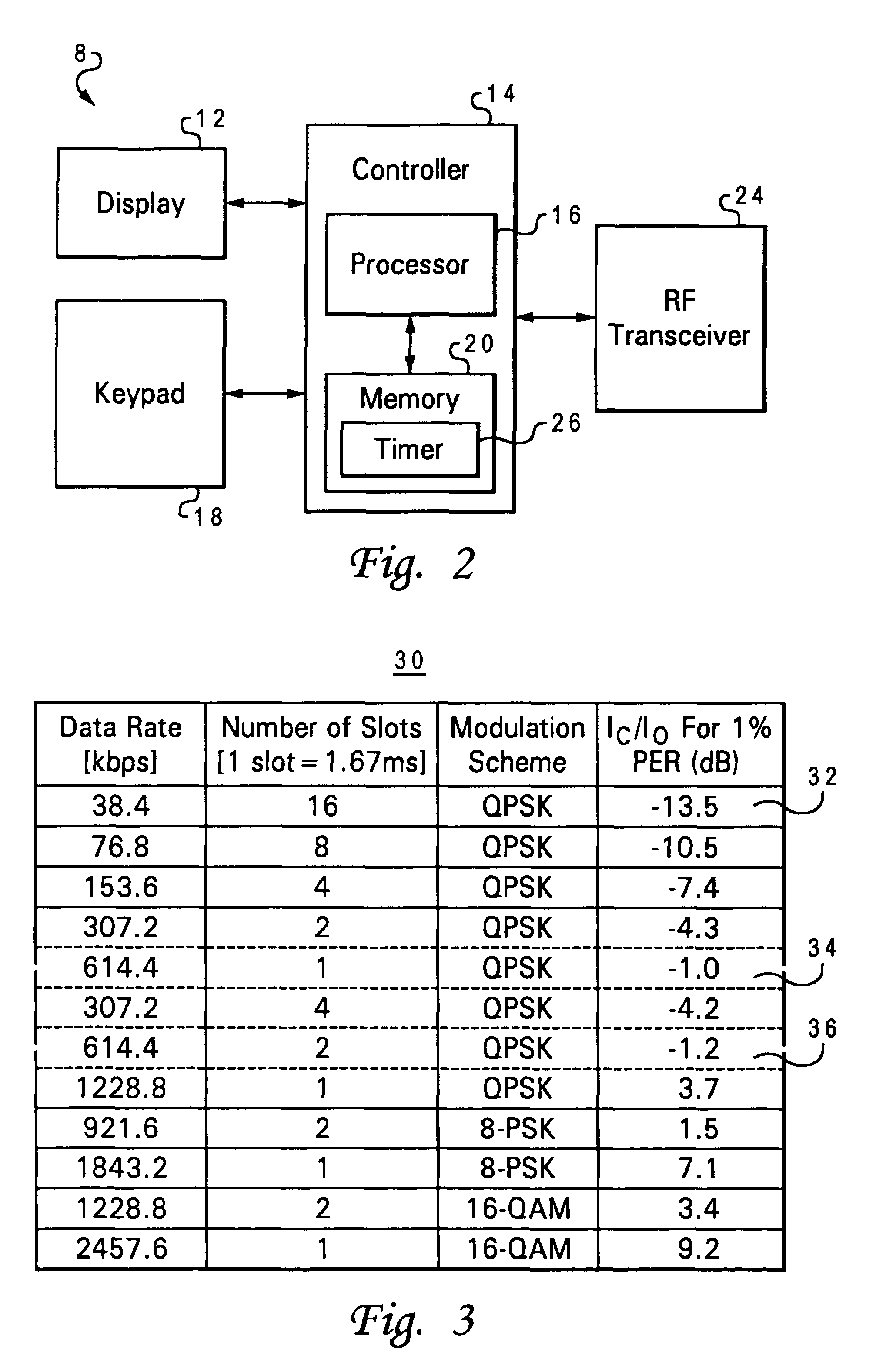Adaptive data rate control for mobile data transfer for high throughput and guaranteed error rate
a data rate control and mobile data technology, applied in the field of mobile telecommunications, can solve problems such as reducing data transmission efficiency, interference caused by signals from other parties, and failure to decode packets delivered from access nodes, and achieve the effect of maximizing data throughpu
- Summary
- Abstract
- Description
- Claims
- Application Information
AI Technical Summary
Benefits of technology
Problems solved by technology
Method used
Image
Examples
Embodiment Construction
[0018]This invention is described in a preferred embodiment in the following description with reference to the figures. While this invention is described in terms of the best mode for achieving this invention's objectives, it will be appreciated by those skilled in the art that variations may be accomplished in view of these teachings without deviating from the spirit or scope of the present invention. Although, the present invention will be described herein in terms of a particular system and particular components, one of ordinary skill in the art will readily recognize that this method and system will operate effectively for other components in a data processing system.
[0019]Referring now to the drawings and in particular to FIG. 1, there is depicted a high-level diagram of a wireless communication network 10 in which a preferred embodiment of the present invention may advantageously be implemented. Wireless communication network 10 preferably employs a mobile air-interface digita...
PUM
 Login to View More
Login to View More Abstract
Description
Claims
Application Information
 Login to View More
Login to View More - R&D
- Intellectual Property
- Life Sciences
- Materials
- Tech Scout
- Unparalleled Data Quality
- Higher Quality Content
- 60% Fewer Hallucinations
Browse by: Latest US Patents, China's latest patents, Technical Efficacy Thesaurus, Application Domain, Technology Topic, Popular Technical Reports.
© 2025 PatSnap. All rights reserved.Legal|Privacy policy|Modern Slavery Act Transparency Statement|Sitemap|About US| Contact US: help@patsnap.com



